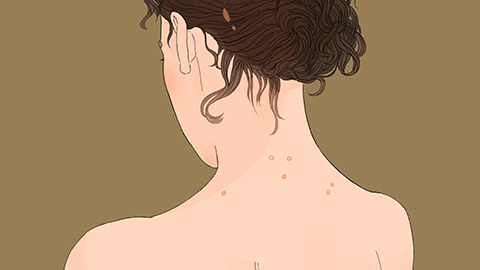How to remove dampness from the body
Generally speaking, the presence of dampness in the body might be caused by long-term consumption of cold foods and beverages, prolonged exposure to air-conditioned environments, spleen deficiency with dampness retention, damp-heat descending, kidney yang deficiency with fluid retention, and other similar conditions. It is recommended to seek timely medical consultation to identify the underlying cause and then improve the condition under a physician's guidance through general treatments, medications, and other methods. A detailed analysis is as follows:

1. Long-term consumption of cold foods and beverages: Frequently drinking chilled beverages or consuming cold foods like ice-cold watermelon can damage the yang energy of the spleen and stomach, leading to impaired transformation and transportation of dampness. To improve this, reduce intake of raw and cold foods in daily life, drink more warm water, and appropriately consume warming ingredients such as ginger and longan to help dispel internal cold and promote dampness metabolism.
2. Prolonged exposure to air-conditioned environments: Air circulation is often poor in air-conditioned rooms, and the low temperature makes it easier for external dampness to invade the body while simultaneously inhibiting perspiration. It is recommended to ventilate the room regularly for at least 30 minutes each time, avoid setting the air conditioner below 26°C, and take a 10-minute break outdoors every 2 hours to breathe fresh air.
3. Spleen deficiency with dampness retention: Irregular eating habits and excessive fatigue can weaken the function of the spleen and stomach, preventing normal elimination of dampness. Symptoms may include abdominal distension and sticky stools. Patients should follow medical advice to take medications such as Shen Ling Bai Zhu San, Jian Pi Wan, or Xiang Sha Liu Jun Wan to regulate the spleen and stomach. At the same time, maintain regular eating habits, avoid overeating, and reduce the burden on the digestive system.
4. Damp-heat descending: Long-term consumption of spicy and greasy foods or staying in hot, stuffy environments can lead to accumulation of damp-heat in the lower part of the body, causing symptoms such as heaviness in the lower limbs, dark yellow or reddish urine. Patients should follow medical advice to take medications such as Ge Gen Qin Lian Wan, Long Dan Xie Gan Wan, or Yin Zhi Huang Oral Liquid to clear heat and remove dampness. In terms of diet, consume more heat-clearing ingredients such as mung beans and wax gourd, and avoid spicy and irritating foods.
5. Kidney yang deficiency with fluid retention: Deficiency of kidney yang impairs the body's ability to warm and transform fluids, leading to excessive dampness and symptoms such as cold intolerance, leg edema, and soreness and weakness of the waist and knees. Patients should follow medical advice to take medications such as Jin Kui Shen Qi Wan, Gui Fu Di Huang Wan, or You Gui Wan to warm the kidneys and promote diuresis. In daily life, consume warming foods such as lamb and leeks, keep the waist and legs warm, and avoid staying in damp environments for long periods.
Regular foot soaking can also be beneficial. Add ingredients such as mugwort leaves and ginger to the water and soak feet for 15–20 minutes each time to promote blood circulation and expel dampness. Choose loose, breathable clothing, keep the skin dry, and adopt comprehensive lifestyle adjustments to help eliminate internal dampness.





